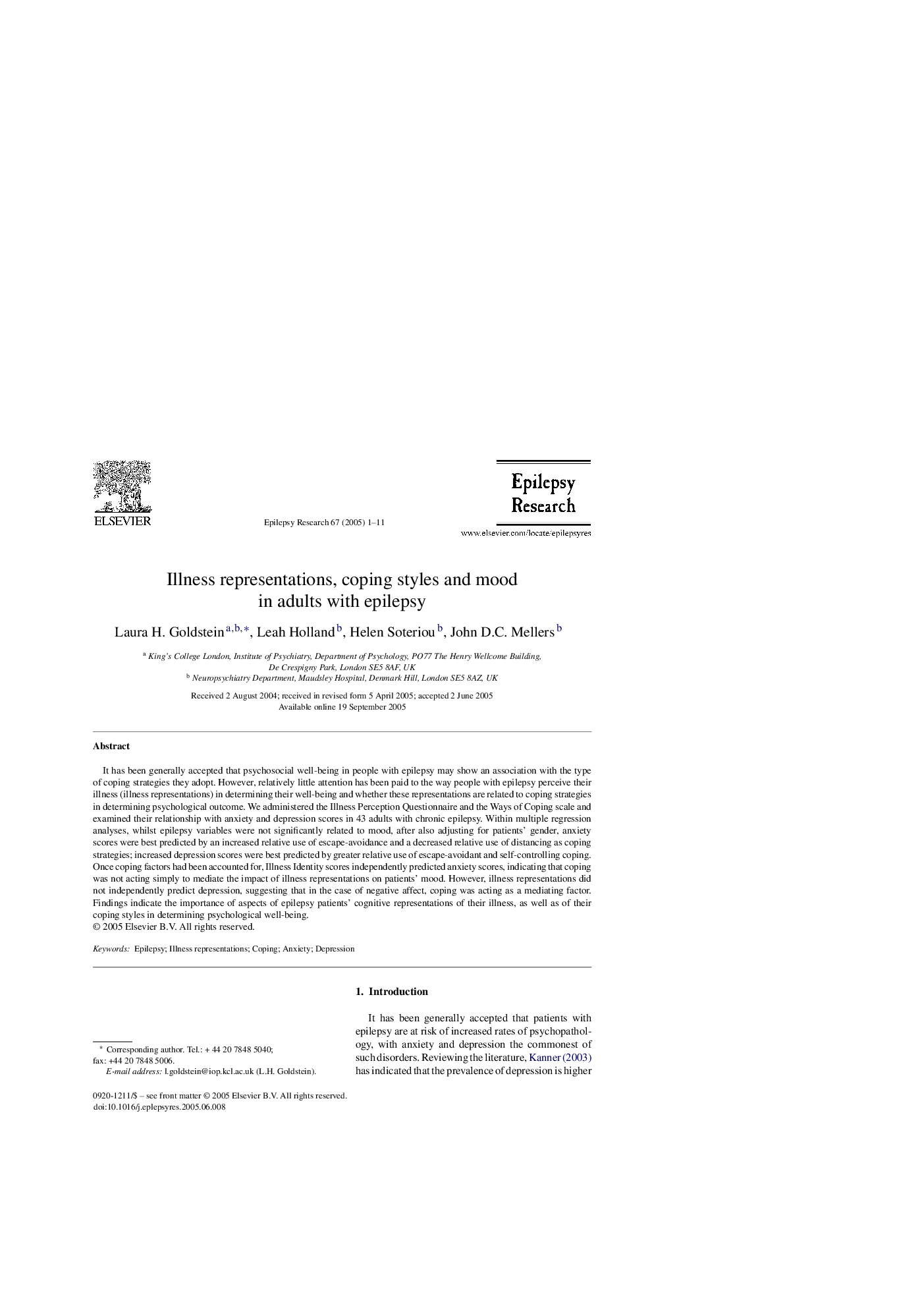| Article ID | Journal | Published Year | Pages | File Type |
|---|---|---|---|---|
| 9191280 | Epilepsy Research | 2005 | 11 Pages |
Abstract
It has been generally accepted that psychosocial well-being in people with epilepsy may show an association with the type of coping strategies they adopt. However, relatively little attention has been paid to the way people with epilepsy perceive their illness (illness representations) in determining their well-being and whether these representations are related to coping strategies in determining psychological outcome. We administered the Illness Perception Questionnaire and the Ways of Coping scale and examined their relationship with anxiety and depression scores in 43 adults with chronic epilepsy. Within multiple regression analyses, whilst epilepsy variables were not significantly related to mood, after also adjusting for patients' gender, anxiety scores were best predicted by an increased relative use of escape-avoidance and a decreased relative use of distancing as coping strategies; increased depression scores were best predicted by greater relative use of escape-avoidant and self-controlling coping. Once coping factors had been accounted for, Illness Identity scores independently predicted anxiety scores, indicating that coping was not acting simply to mediate the impact of illness representations on patients' mood. However, illness representations did not independently predict depression, suggesting that in the case of negative affect, coping was acting as a mediating factor. Findings indicate the importance of aspects of epilepsy patients' cognitive representations of their illness, as well as of their coping styles in determining psychological well-being.
Related Topics
Life Sciences
Neuroscience
Neurology
Authors
Laura H. Goldstein, Leah Holland, Helen Soteriou, John D.C. Mellers,
